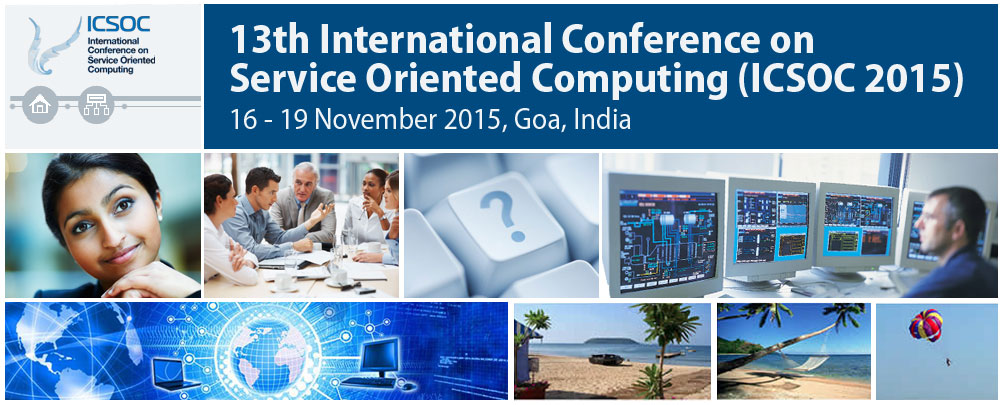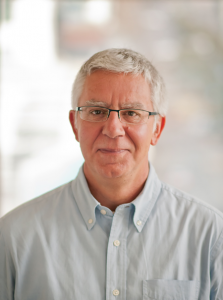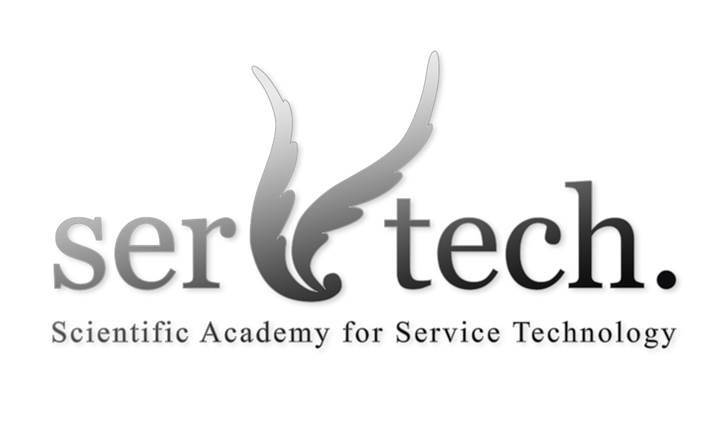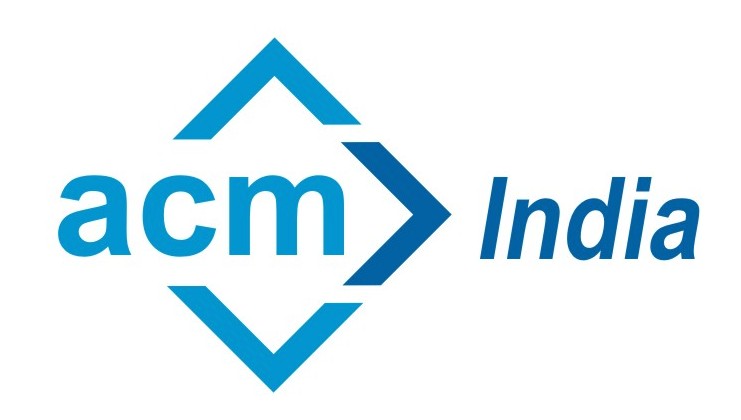Keynote 1
Data Ecosystems: From Data Services to Big Data Infrastructures
Speaker: Timos Sellis, Professor, RMIT University,
http://www.rmit.edu.au/staff/timos-sellis
Abstract:
Data ecosystems involve the coexistence of one or more data collections, typically databases, and their surrounding applications for data entry and retrieval. For decades, data management has failed to address significant, costly and labor-consuming challenges which involve (a) the departure from databases focusing on alphanumeric data only, (b) their inability to be integrated and provide transparent access and composition facilities for heterogeneous data, (c) their static querying nature, which is deprived of personal, context-aware or interactive characteristics, (d) the enforcement of DBMS operation over monolithic servers, and, (e) the complete indifference to problems of evolution and adaptation over time.
In this talk we address issues around the methodologies, the theoretical and modeling foundations as well as the algorithmic techniques and the necessary software architectures that will facilitate the personalization, integration, and evolution management facilities for data ecosystems that operate over a decentralized infrastructure for a large variety of data types.
About the Speaker:
Timos Sellis received his diploma degree in Electrical Engineering in 1982 from the National Technical University of Athens (NTUA), Greece. In 1983 he received the M.Sc. degree from Harvard University and in 1986 the Ph.D. degree from the University of California at Berkeley, both in Computer Science. In 1986, he joined the Department of Computer Science of the University of Maryland, College Park as an Assistant Professor, and became an Associate Professor in 1992. Between 1992 and 1996 he was an Associate Professor at NTUA, where he served as a Professor till January 2013. He is currently a Professor at the School of Computer Science and Information Technology of RMIT University in Australia. Prof. Sellis was also the Director of a new research institute he founded in Greece, the Institute for the Management of Information Systems (IMIS) of the “Athena” Research Center (www.imis.athena-innovation.gr) between 2007 and 2012.
His research interests include big data, data streams, personalization, data integration, and spatio- temporal database systems. He has published over 200 articles in refereed journals and international conferences in the above areas, has over 11.500 citations to his work and has been invited speaker in major international events. He has also participated and co-ordinated several national and european research projects. Prof. Sellis is a recipient of the prestigious Presidential Young Investigator (PYI) award given by the President of USA to the most talented new researchers (1990), and of the VLDB 1997 10 Year Paper Award in 1997 (awarded to the paper published in the proceedings of the VLDB 1987 conference that had the biggest impact in the field of database systems in the decade 1987-97). He was the president of the National Council for Research and Technology of Greece (2001-2003). In November 2009, he was awarded the status of IEEE Fellow, for his contributions to database query optimization, and spatial data management, and in November 2013 the status of ACM Fellow, for his contributions to database query optimization, spatial data management, and data warehousing.
Keynote 2
Transforming Identification in India: The Aadhaar Experience
Speaker : Pramod Varma, Unique Identification Authority of India

Abstract:
Aadhaar, India’s Unique Identity Project, has become the largest biometric identity system in the world, already covering more than 900 million people. Its strength lies in its design simplicity, sound strategy, and technology backbone issuing 1 million Aadhaar numbers and doing more than 900 trillion biometric matches every day! Architecting Aadhaar system keeping the scale, security, ecosystem design, and most importantly the constraints of an e-Governance system, has been a learning experience. Entire technology architecture behind Aadhaar is based on principles of openness, linear scalability, strong security, and most importantly vendor neutrality. In this talk, the speaker, who has been the Chief Architect of Aadhaar since inception, shares his experience of building the system.
About the Speaker:
| Dr. Pramod Varma is currently the CTO for EkStep, a not-for-profit creating learner-centric, technology enabled platform to improve applied literacy and numeracy.He continues to be the Chief Architect and Technology Advisor for Aadhaar project where he is responsible for entire system architecture and strategic technology decisions. He joined UIDAI in 2009 as part of the founding team and has been pivotal in ensuring an open, scalable, and secure architecture is built to meet the needs of Aadhaar project. In addition, he also sits on the advisory board of National Payment Corporation (NPCI), Goods and Services Tax Network (GSTN), and several technology startups. He regularly speaks at technology conferences and events and participates in advisory groups of various national projects from time to time.
Before joining UIDAI in July 2009, he was the Chief Technology Architect and Vice President of Research at Sterling Commerce, now part of IBM. He worked across the organization and customers to evangelize technology and helps product teams make strategic technology and architecture decisions. He joined Sterling in 2005 when Sterling Commerce acquired Yantra Corporation, a leading supply chain software company based in Boston, USA. He was one of the cofounders of Yantra Corporation and has been anchoring all technology and architecture strategies and has been key part in building Yantra’s retail supply chain application product suite. Before cofounding Yantra Corporation, he began his career as part of the research team at Infosys Technologies and has lead research teams that conceived, designed, and built an Internet banking module and a powerful web application server as early as 1995. Over the past 20+ years, he has studied architectures spanning from mainframes to web and has worked extensively with most programming languages and databases. He has researched and taught various courses in Database Tuning, Distributed Computing, Internet Technologies, and Computer Architectures among others.
Pramod holds a Master’s and Ph.D. degree in Computer Science along with a second Master’s in Applied Mathematics. His main areas of interest are Internet scale distributed architectures and intelligent systems. He is passionate about technology, science, society, and teaching. |
Keynote 3
Using Data Science to Scale and Personalize Services
Speaker : Manish Gupta, Vice President and Director, Xerox Research Center India

Abstract:
Many services, such as healthcare and education are highly human-intensive offerings that remain inaccessible (at acceptable quality level) to large numbers of people. With advances in computational power and increasing digitization of the world, there is an opportunity to apply data science to transform these services. We begin by describing a dire need and an opportunity to improve the healthcare system worldwide by supporting a shift from reactive treatment to more proactive action. As examples of what is possible, we present new machine learning techniques to predict a class of complications in an ICU, to identify patients in a hospital who are likely to require ICU admission, and to support triage of stroke patients. We also present preliminary work that shows the applicability of remote sensing and data analytics to measure body vitals such as respiration and heart rate, to screen for diseases, and to reduce the need for people to visit a hospital. We then describe a system called TutorSpace to help with personalization and improved navigation of videos from massive open online courses to enable more effective learning. Finally, we present data-driven techniques to improve public transportation services and to enable cities to reduce traffic congestion while offering a range of transportation options to their citizens. We frame all of the above efforts as examples of using data science to offer personalized services at scale. We describe some outstanding challenges that need to be met to achieve truly transformational impact.
About the Speaker:
Dr. Manish Gupta is Vice President at Xerox Corporation and Director of Xerox Research Centre in India. Previously, Manish has served as Managing Director, Technology Division at Goldman Sachs India, and has held various leadership positions with IBM, including that of Director, IBM Research – India and Chief Technologist, IBM India/South Asia. From 2001 to 2006, he served as a Senior Manager at the IBM T.J. Watson Research Center in Yorktown Heights, New York, where he led the team developing system software for the Blue Gene/L supercomputer. IBM was awarded a National Medal of Technology and Innovation for Blue Gene by US President Barack Obama in 2009. Manish has co-authored about 75 papers, with more than 5,000 citations in Google Scholar in the areas of high-performance computing, compilers, and virtual machine optimizations, and has been granted 19 US patents. While at IBM, Manish received an Outstanding Innovation Award, two Outstanding Technical Achievement Awards and the Lou Gerstner Team Award for Client Excellence. Manish is an ACM Fellow and a recipient of a Distinguished Alumnus Award from IIT Delhi.




